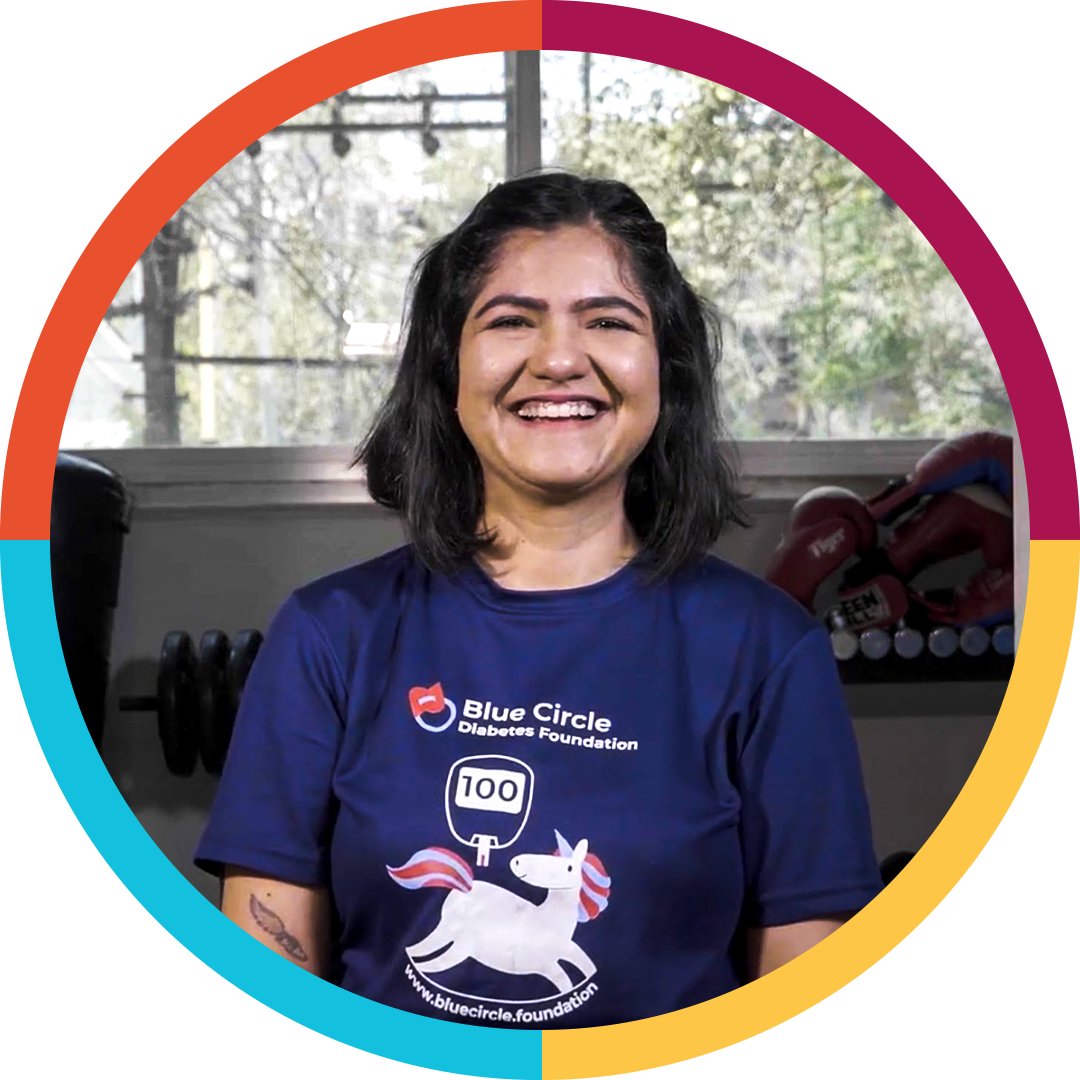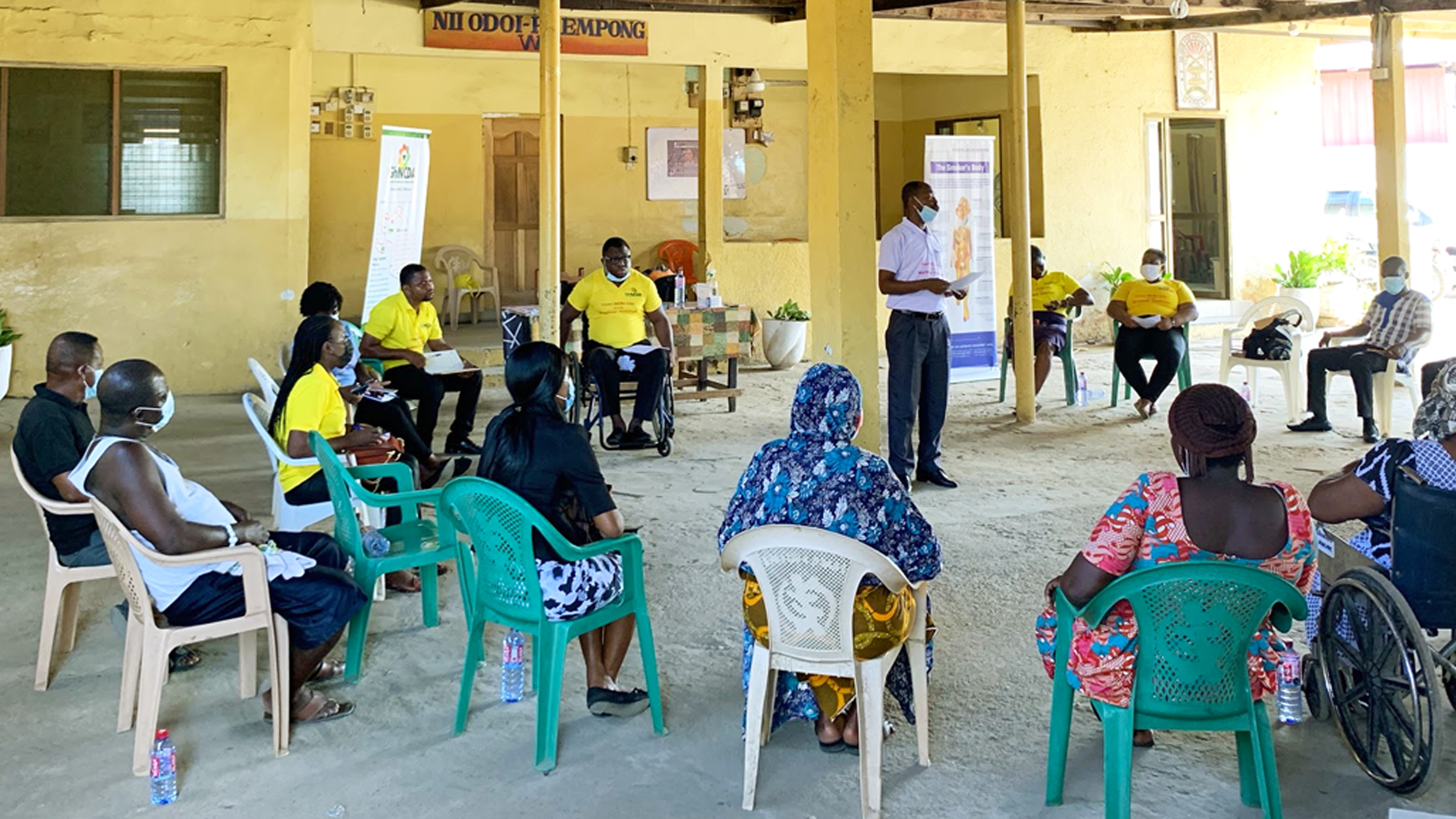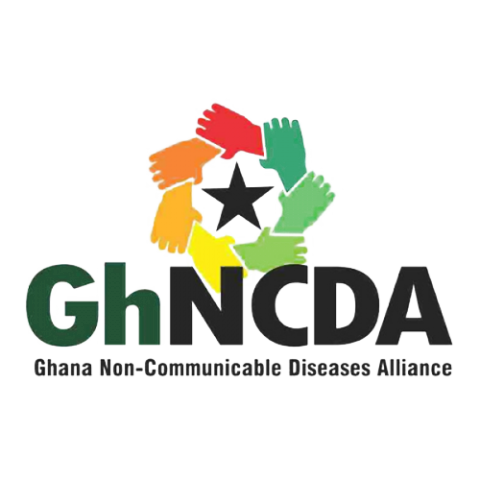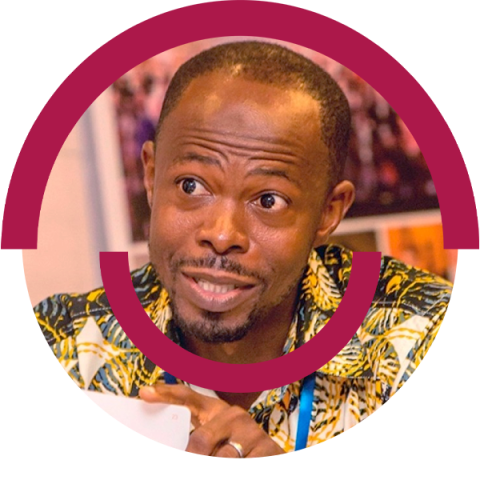Navigating the landscape of noncommunicable diseases (NCDs) in Ghana requires more than just strategies and policies—it necessitates the power of effective leadership. As the National Coordinator of the Ghana NCD Alliance (GhNCDA), I am honoured to contribute to the Global Week for Action on NCDs campaign by shedding light on the leadership role I have the privilege to play in championing the NCD cause in Ghana and beyond. My journey has been marked by the inspiring leadership displayed by individuals living with NCDs.
In this blog, I will share specific achievements that underscore the importance of bridging the NCD leadership gap and amplifying the voices of community leaders who are driving meaningful change.
At the heart of our efforts lies the coordination of five active networks of people living with NCDs, serving as a beacon of hope and solidarity for those grappling with NCDs such as diabetes, hypertension, cancers, and heart disease, among others. Through my role as National Coordinator, I have witnessed firsthand how collective leadership among patients has transformed our advocacy efforts, fostering a community that actively campaigns and demands improved healthcare services and increased access to essential medications. In doing so, the GhNCDA has become a household name in the health sector advocating for policies on NCDs, monitoring, and sharing feedback on strengthening and prioritising NCDs, particularly at the primary health care level.
Experiences and lessons learned
Through community engagement, I have seen the myriad challenges faced by members of these networks—from navigating public health systems to managing chronic ailments with limited resources. Yet, amidst these trials, a spirit of resilience and empowerment flourishes, driven by the Our Views, Our Voices initiative of the NCD Alliance. The initiative has built individuals’ capacity to advocate for their needs and ensures their meaningful involvement in all decision-making processes. By empowering individuals to speak out, we create a ripple effect of awareness and advocacy that inspires others within their communities.
At the same time, I have witnessed stiff opposition/challenges and lack of commitment from policymakers to the concept of meaningful involvement of people living with NCDs in decision-making processes. But as shared by Martha Coffie, a mental health and NCDs advocate:
“Empowering community leaders with lived experience of NCDs is key to closing the leadership gap in Ghana. Leadership isn't just about titles; it's about voices—voices of those living with NCDs.”
Successes and key messages
Fostering solidarity and increasing collective advocacy are keys to our cumulative successes. Our members’ ability to share personal experiences has amplified their voices, influencing policies and programmes at various levels. Notably, my leadership facilitated the active involvement of civil society organisations (CSOs) in organising the 1st International Strategic Dialogue on NCDs in Ghana in 2022, which brought together stakeholders to discuss global efforts to address NCDs.
CSOs and people living with NCDs have actively engaged with policymakers, parliamentarians, and political parties for the inclusion of NCD interventions in their manifesto. Those efforts led to the key political parties identifying interventions that they have pledged to implement when they win the election. Under my leadership, the GhNCDA has authored several locally curated scientific reports on NCDs to influence policy action; I represent CSOs on the National Multi Steering Committee on NCDs, and the GhNCDA has received global recognition from the UN Interagency Taskforce on NCDs.
I have successfully facilitated six National High-Level Meeting on NCDs, which has focused the government’s attention, and priorities, on NCDs. My leadership led to changes to the Ghana Excise Duty Amendment Act, including reform of taxes for tobacco products, and price hikes for alcohol and sugar sweetened beverages. I provided technical support to the Food and Drugs Authority and mobilised CSOs for the recent case in which the Supreme Court of Ghana upheld the FDA ban on well-known personalities/celebrities appearing in alcohol advertisements.
Finally, as a result of community-led monitoring using the Community Scorecard, NCDs have been prioritised in some selected regions to measure progress, identify gaps, and make recommendations for improving NCD service delivery at the community level.
“By uniting our strengths and voices, we can overcome the challenges of NCDs and create lasting impact in shaping a healthier future free of NCDs for all,”
said Ama Nyarko (who lives with Sickle Cell Disease).
Why NCD leadership matters
Closing the NCD leadership gap is not merely aspirational; it is essential for driving change that originates at the community level. Empowering community leaders—especially those living with NCDs—is paramount in fostering sustainable action, mobilising vital resources, and encouraging meaningful advancements towards a healthier future for all individuals in Ghana and beyond.
“Our advocacy isn't just a call for better healthcare—it's a call for justice and equity that can transform advocacy into a beacon of hope for many,”
says Essel Francis (a person living with diabetes).
As we campaign towards the Global Week for Action, it is crucial to rally behind the leadership of community members in the fight against NCDs. By recognising and supporting their voices, we pave the way for transformative change and health equity. These community leaders, many of whom live with NCDs themselves, exemplify unparalleled courage, resilience, and advocacy. Their efforts remind us that true leadership transcends boundaries. As we empower our communities, let us amplify their voices and work together to close the NCD leadership gap, ensuring that everyone plays a role in shaping a healthier future. By uniting our strengths, we can effectively tackle the challenges posed by NCDs and create a sustainable impact for generations to come.






